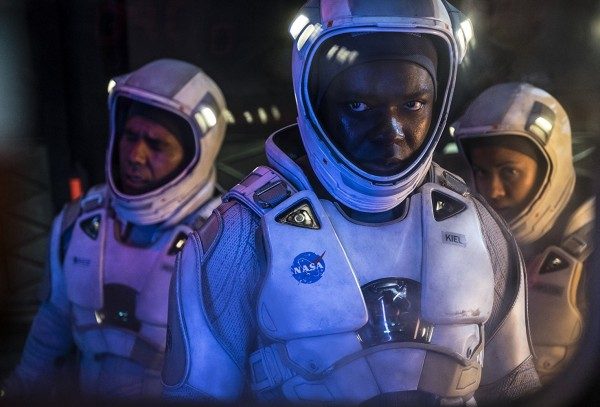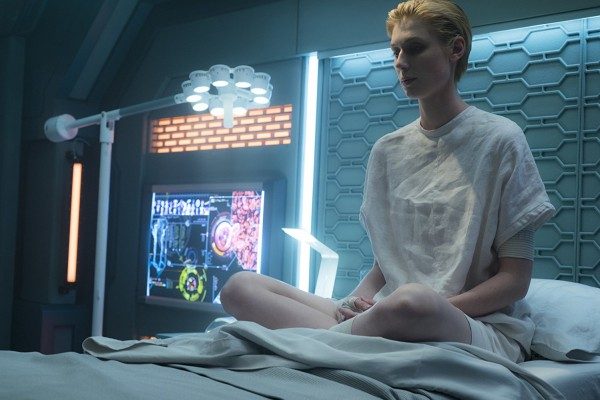

Taking the idea of an “event movie” to a whole other level, J.J. Abrams’ secret Cloverfield sequel (prequel? episode?) was released last night directly after the Super Bowl, with only one TV spot to advertise its impending drop on Netflix. Some may call it a gimmick, some may call it genius, but in all reality, it’s a little bit of both. Judging from the way in which it was released without any warning or knowledge of its existence, and subsequently the convoluted and genre heavy quality to the actual film, Abrams and company at Bad Robot likely released it in this way so it could achieve its greatest possible financial impact.
Put simply, this film, directed by Julius Onah, is a glittery dud. Take away the excitement felt from seeing a film virtually live with the rest of the world, and all we have is a sci-fi horror leaning on its conventions and reminding us a little too much of Alien, Black Mirror, and a slew of other content that came before it.
The Cloverfield Paradox puts audiences on board a space ship tasked with working a particle accelerator in order to find a way to replenish the rapidly depleting energy reserves on Earth. The ship is manned by a multi-country crew consisting of England’s Hamilton (Gugu Mbatha Raw), America’s Kiel (David Oyelowo), China’s Tam (Zhang Ziyi), Germany’s Schmidt (Daniel Bruhl), Russia’s Volkov (Aksel Hennie), Ireland’s Mundy (Chris O’Dowd), and eventually the mysterious Jensen (Elizabeth Debicki). After a routine firing of the accelerator, the crew and ship lose their site of Earth and seem to have travelled into another dimension, desperately seeking their way back in order to save their loved ones, who are now presumably facing the enigmatic aliens of the first two films.
If fans were hoping that this third installment in the now weakening franchise would answer any lingering questions, the answer will be mostly no. The film raises a lot more questions than it answers, some in the form of significant plot holes, such as a dimension-traveling arm and characters appearing willy-nilly on one side and not the other. It is very likely that Abrams and co. plan on answering these questions and covering up these holes in the next film, God Particle, but it also doesn’t inspire much faith from the viewer. Rather it requires the audience to place an unprecedented amount of faith in Abrams’ overall vision, that all of these wacky, genre-splitting films will eventually weld into a cohesive end. As of now, that end is not in clear sight.
The Verdict: 2.5 out of 5
The Cloverfield Paradox should be credited with at least one thing, its rapid Netflix release. Seeing as how the film goes by in a confusing, but thrilling and horror-filled flash, it is perfect viewing on your couch for a lazy weekend night. Don’t get your hopes up too much, the film will feel much more like a high-budget episode of television than an actual full-length feature, but it is a fun ride nonetheless.


